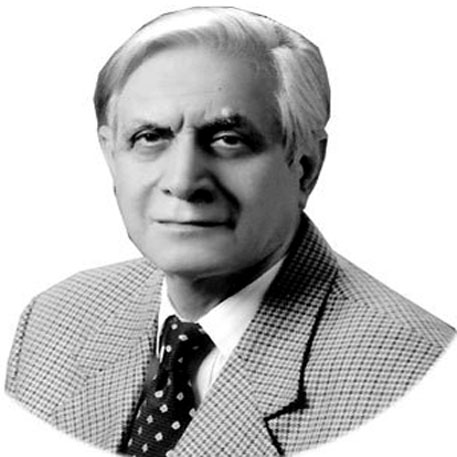Independence Day: Pakistan & Bangladesh
Muslims of Bengal then lodged strong struggle to get Bengal partitioned. Partition of Bengal was a great achievement for the Bengali Muslims. The Congress and majority Hindus staged a prolonged agitation to undo partition. In 1912 British were compelled to undo it. It created mood of despair and frustration among Bengal Muslims.
The period between 1914 and 1935 was extremely volatile for Muslims of India. Congress employed notable ulema and prominent Muslims to convince Muslims to rally behind Congress.
Quaid remained committed to Hindu-Muslim unity in early 20th Century. Internal discord among Muslims was always capitalized by the Congress and even British. Fourteen point formula was negotiated by Jinnah to forge Hindu-Muslim unity.
It was ditched by Congress. Frustrated Jinnah shifted to England. He came back on immense persuasion. He started to reorganize Muslim League. The Party did not fare well in 1936 elections under government of India Act of 1935, except in Bengal, Punjab and Sindh. It bagged only 117 seats, whereas Congress bagged over 700 seats. Out of eleven it was winner in eight provinces.
It made Congress arrogant and the conditions it laid before Muslim League were extremely derogatory.
Had AIML accepted it would have been eliminated as a Muslim Party? The rule of Congress 1936-38 reflected the imposition of Hindutva and what will be in store for Muslims in Hindu India.
It was the darkest period for Muslims of India. Congress launched Wardha and Mandar schemes making it mandatory for all village students to attend school in Mandars and Muslim students were forced to chant Bandai Matram, a pure Hindu song.
This was followed by ban on cow slaughter, restricting jobs for the Muslims and ban Azan on loud-speaker.
Congress behaviour paved the way for the demand of Pakistan. A day of deliverance was celebrated when Congress resigned on the beginning of WW2 on the issue of recruitment of Indians in British army.
Congress then as a strategy staged Hindu Muslim riots at a large scale. Last ditch effort was made by the British when Cabinet plan was given to Congress and Muslim League.
Congress initially approved it as it would have kept the unity of India with three autonomous zones with a strong centre. The failure of Cabinet Mission, accepted by AIML but Congress refused.
British Viceroy lord Wavell then recommended Partition of India and thus India Partition Bill was passed by British Parliament in 1947. While Jinnah as President of AIML accepted partition plan, Congress accepted it calculating Pakistan will crumble within six months.
Nehru having relationship with Lord Louis Mountbatten, the last viceroy, managed the division of Punjab and Bengal. So was some areas in Sindh which went to India.
Let us not forget our first generation, may it be politicians, bureaucracy, military establishment and people at large having suffered enormously built the foundations of present Pakistan.
Rot started after 1965 war, the war which never ended and still going on in one form or other. The politicians’ vested interests, beginning of corruption in its entire dimension in the body fabric of the country, quickly eroded the gains.
A country with the highest growth in Asia slipped down on many counts. 1971 was the watershed the result of not only the lust for power of three men whom Allah gave the opportunity to take the country forward.
They in their own way manipulated for power. The result, break up the country and suffering for millions in the subcontinent. Indra Ghandi’s hatred for Pakistan seized the opportunity created by the judgment in error by our politicians.
Later Pakistan , not its own doing , got sucked in Afghan war against the Soviet Union, and in follow up of 9/11 in the second Afghan war with friends turning foe. The price was heavy to eliminate terrorism in Pakistan.
The battle is still going on in one form and other. Yet, naivety of political-leadership is unparalleled. They continue in pursuit of their puff for power and money. Result by Pakistan continued to sink politically, economically, strategically. In 2013 Pakistan landed in black list.
Disturbed Afghanistan after 9/11 kept Pakistan on the tender hook and the uncertain geo-strategic milieu which is still persisting, fuelled by the action of Modi in Kashmir and subversion and sabotage in Pakistan.
Now, the threats are multi-dimensional, internally and externally. Time has come on the 74 Independence Day for the nation and its leader ship to take oath to make the country truly democratic, corruption-free and progressive.
And for Bangladesh, it should be clear, strong Pakistan is the best guarantee for its security. Union of two countries is the answer to save themselves from growing threat from the RSS driven India. Two brothers may fight but cannot remain separated.
As Russian President said in the 90s, Russia fought two bloody wars with Germany and France yet we are friends now. —Concluded
—The writer, a retired Brigadier, a veteran of 1965, 1971 wars with SJ, SI, and IS Bar Gallantry. A senior Defence and Industry analyst.










